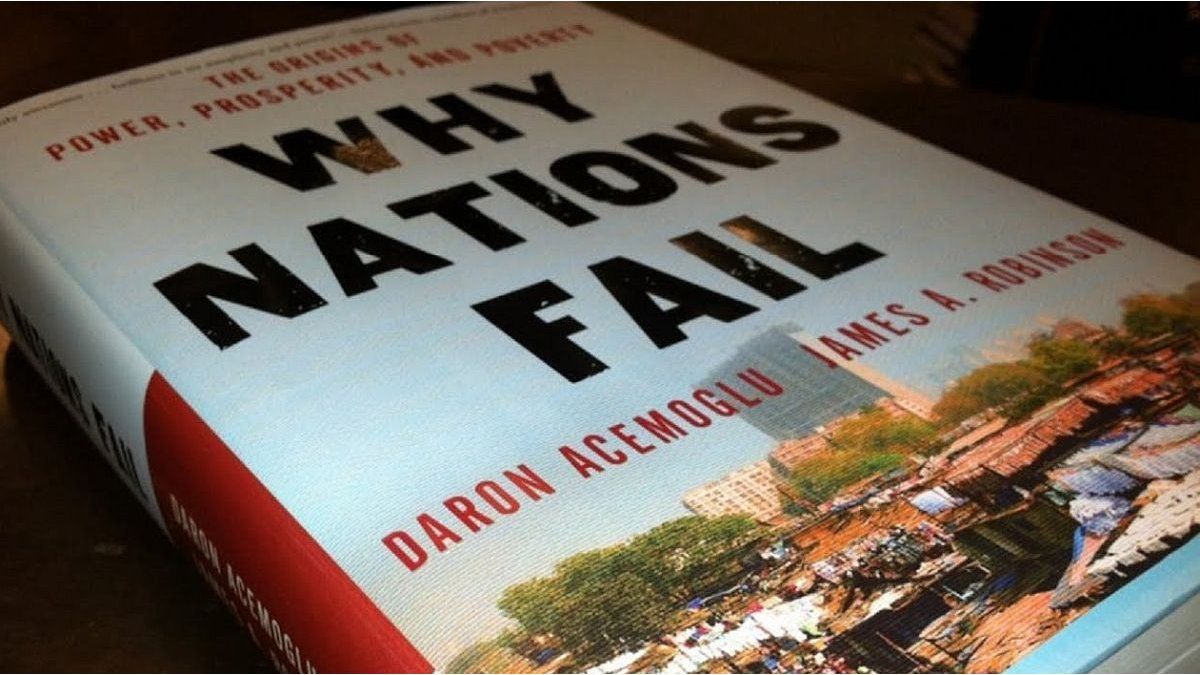the book “Why Countries Fail: The Origins of Power, Prosperity, and Poverty”written by Daron Acemoglu and James A. Robinsonhas gained renewed relevance following the recent announcement that its authors have been awarded the 2024 Nobel Prize in Economics.
This recognition is due to his research on how institutions influence the prosperity of a country, a central theme in his work published in 2012.
A deep analysis of the institutions
The fundamental premise of the book is that economic differences between nations are not the result of geographical or cultural factors, but depend largely on the political and economic institutions that each country establishes. Acemoglu and Robinson argue that inclusive institutions, which encourage political participation and protect property rights, are crucial for economic development. In contrast, “extractive institutions,” which benefit an elite at the expense of the rest of the population, lead to stagnation and poverty.
The authors use historical examples to illustrate their argument. One of the most emblematic cases is that of Nogales, a city divided between the United States and Mexico. Despite sharing culture and geography, Nogales, Arizona, is significantly more prosperous than its Mexican counterpart due to differences in its institutions. This contrast highlights how political decisions can influence the well-being of a population.
The influence of history
Acemoglu and Robinson also explore how colonial history has left a lasting imprint on current institutions. According to them, many countries that were colonized by European powers developed extractive institutions that have persisted to this day. This historical legacy has contributed to the economic inequality seen in the modern world.
The book highlights how certain critical events, such as wars or pandemics, can alter the institutional direction of a country. For example, after the Black Death in Europe, some societies managed to establish more inclusive institutions, while others remained trapped in extractive structures.
Criticisms of other theories
A fundamental part of Acemoglu and Robinson’s work is their criticism of various popular theories that attempt to explain economic development. They argue that factors such as geography or culture are not enough to understand why some countries prosper while others do not. Instead, they emphasize that it is the institutions that really make the difference.
The book also addresses how political elites often resist changes toward more inclusive institutions because of the immediate benefits they gain from the current system. This resistance to change perpetuates the cycle of poverty and inequality.
Current relevance
With the recent recognition of the Nobel Prize, the work “Why Countries Fail” becomes even more relevant in a global context where economic disparities are increasingly evident. The Swedish Academy has highlighted how Acemoglu and Robinson’s studies help understand why these differences persist and how they can be addressed.
In a world where the richest 20% are approximately 30 times richer than the poorest 20%, understanding the mechanisms behind these inequalities becomes crucial. The awardees’ research provides a strong theoretical framework to address these challenges.
Implications for public policies
The book’s conclusions have significant implications for policymakers. Emphasizing the importance of establishing inclusive institutions, Acemoglu and Robinson suggest that countries should focus on political and economic reforms that promote equity and citizen participation. This could include measures such as strengthening the rule of law, ensuring property rights and fostering a competitive economic environment.
Furthermore, the work of these economists underscores the need for a multidimensional approach to addressing complex economic problems. Solutions cannot be one-dimensional; They must consider both political and economic aspects to achieve sustainable development.
“Why Countries Fail” is not only a comprehensive analysis of the causes of economic success or failure between countries, but also a call to action to rethink how our societies are structured.
With their recent recognition with the 2024 Nobel Prize in Economics, Acemoglu and Robinson have reaffirmed their place as key figures in the debate on global economics and politics. His work remains essential reading for those seeking to understand the complex dynamics that shape our world today.
Source: Ambito




